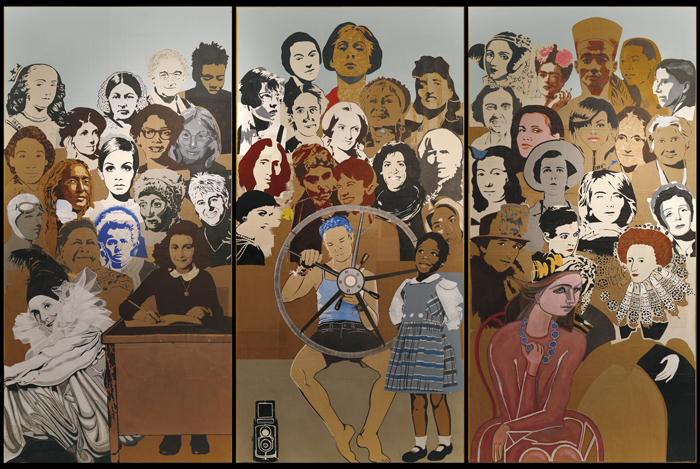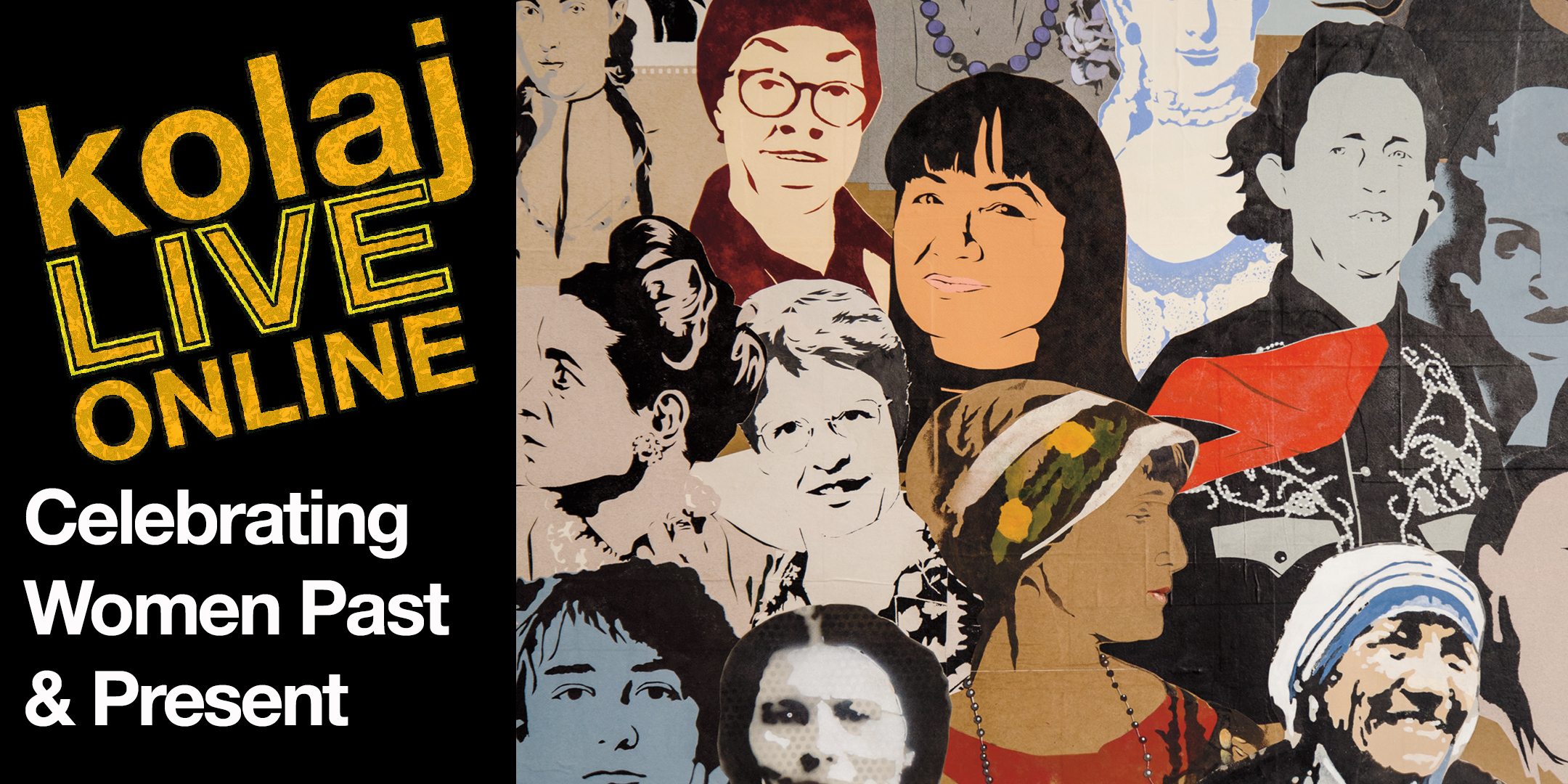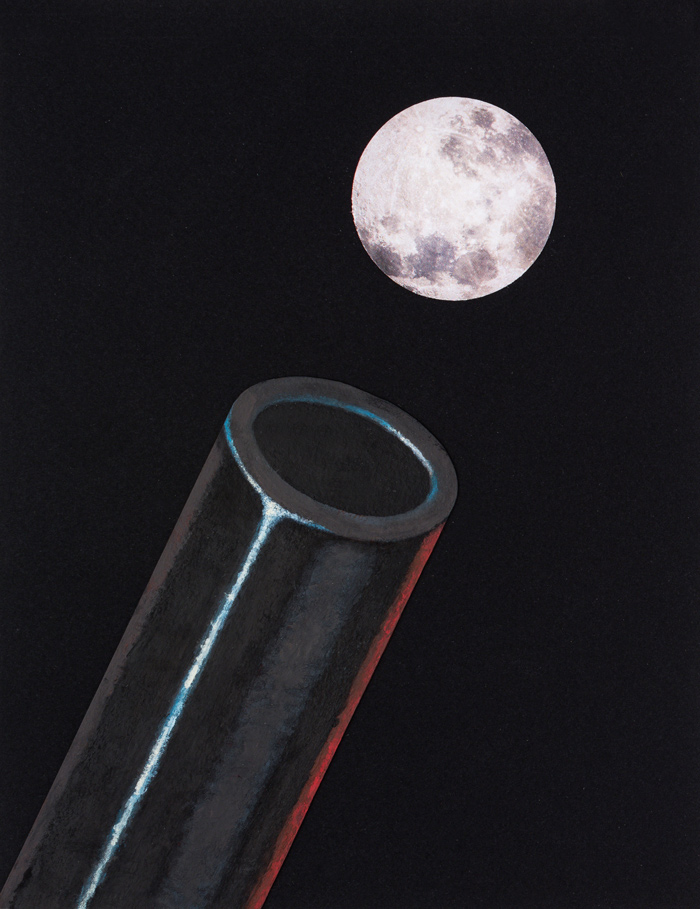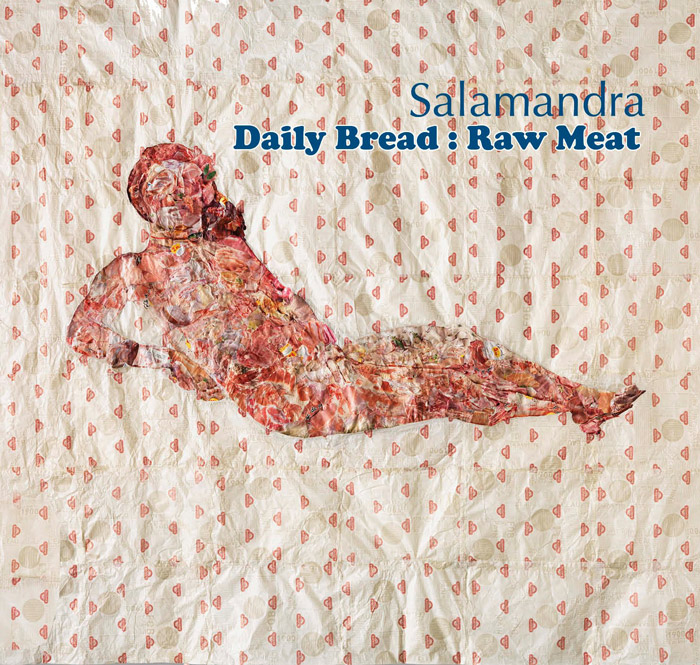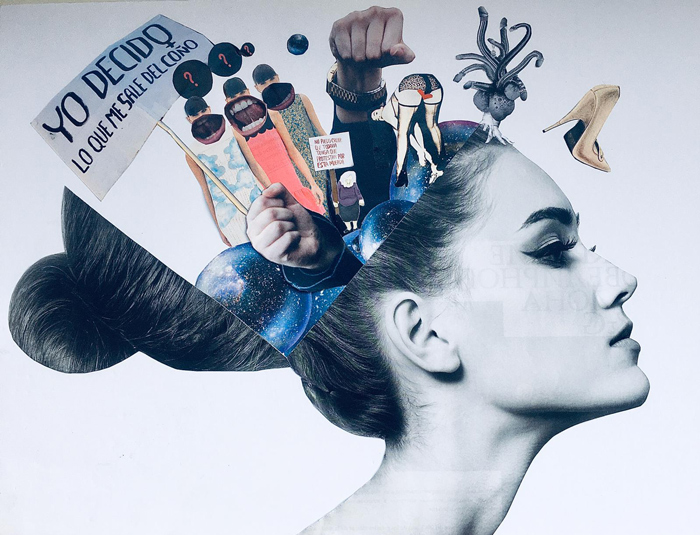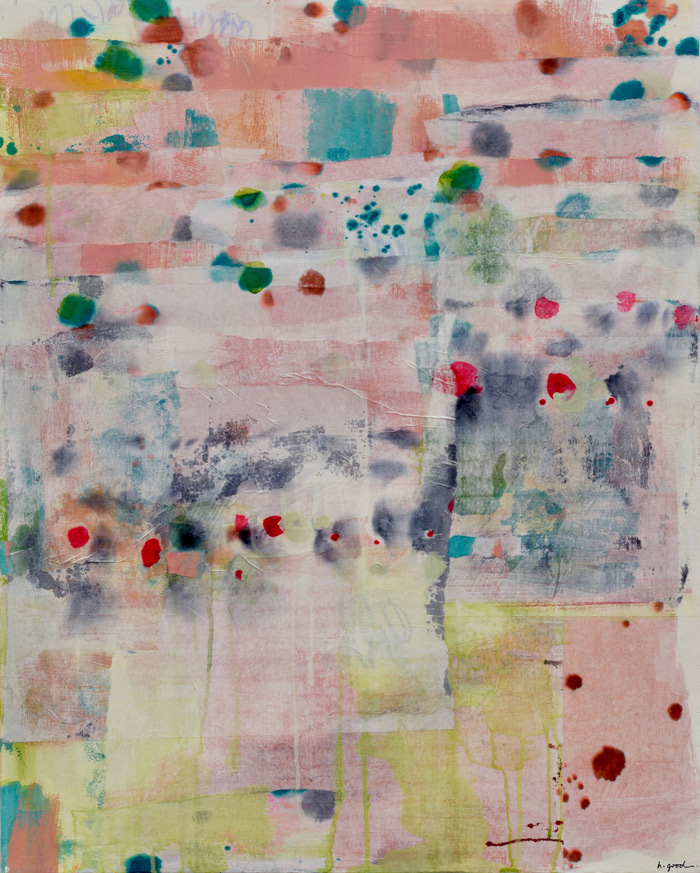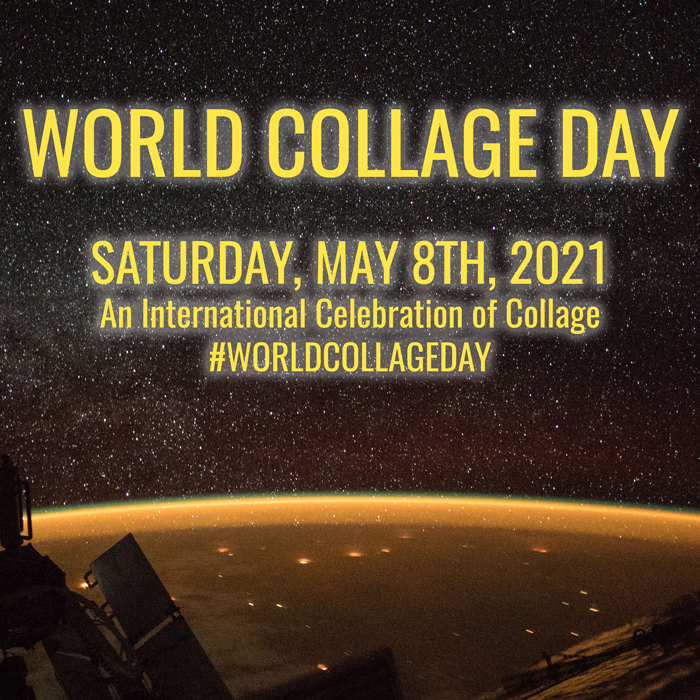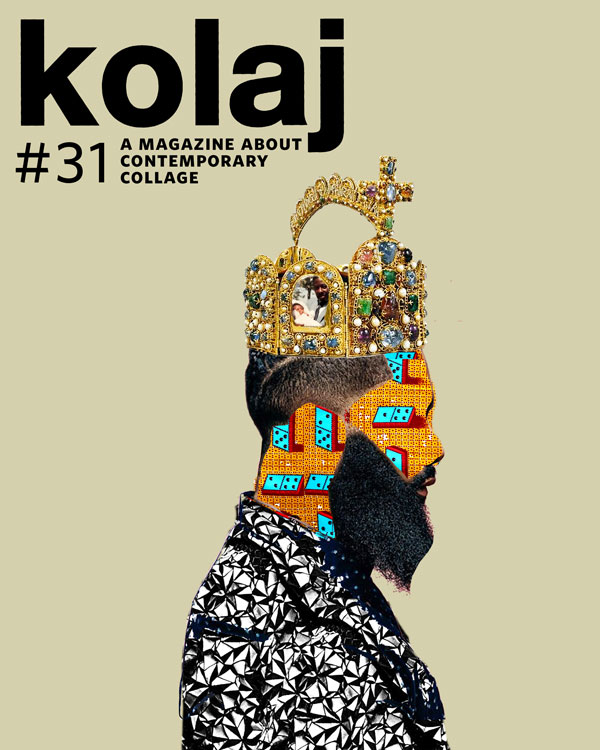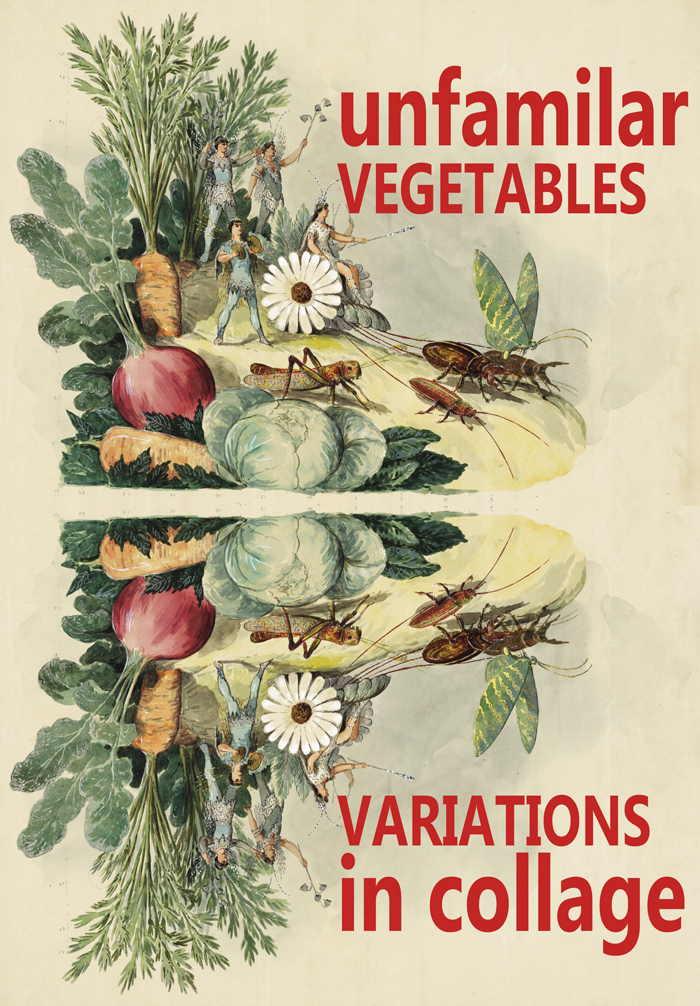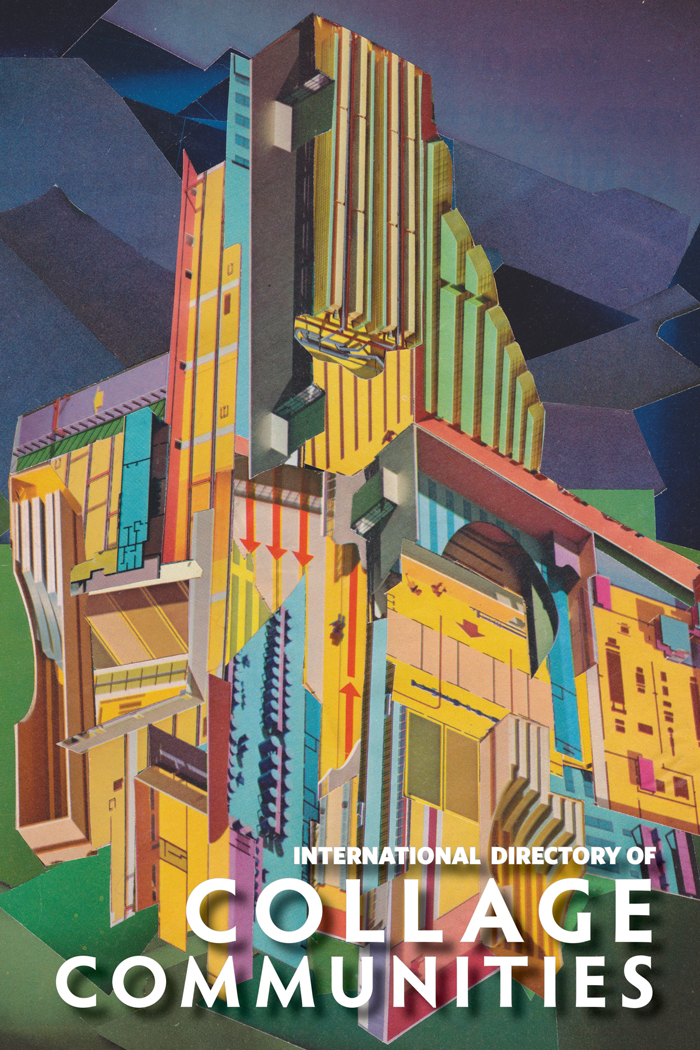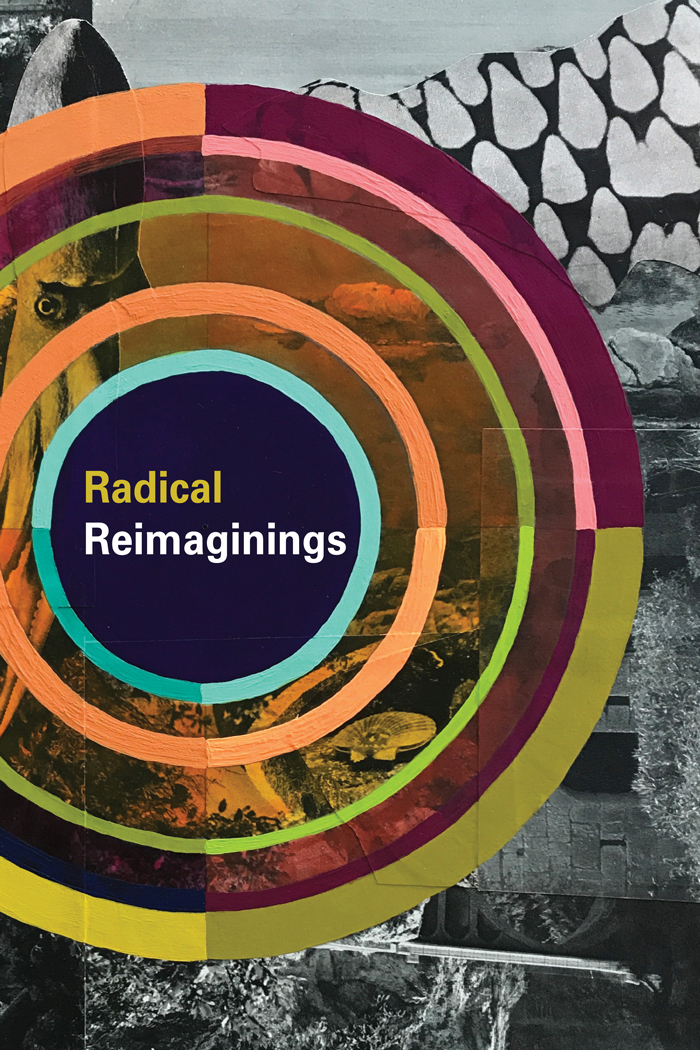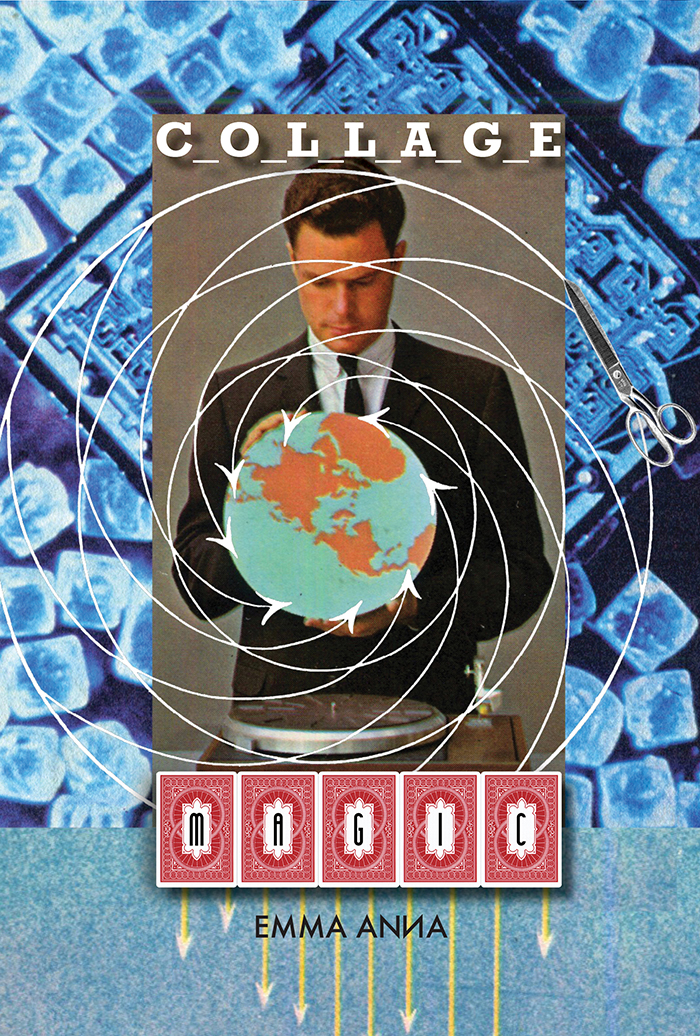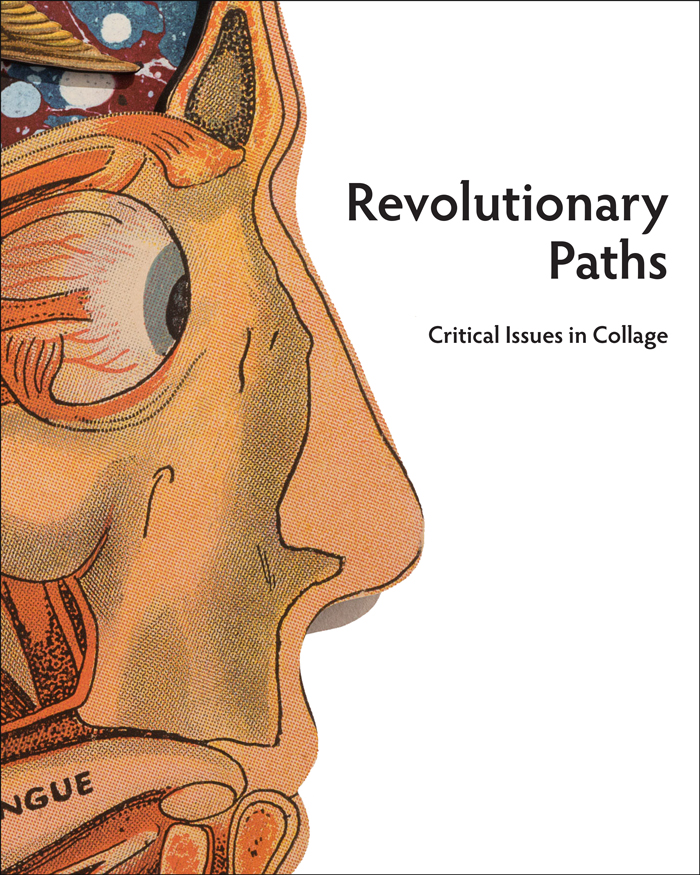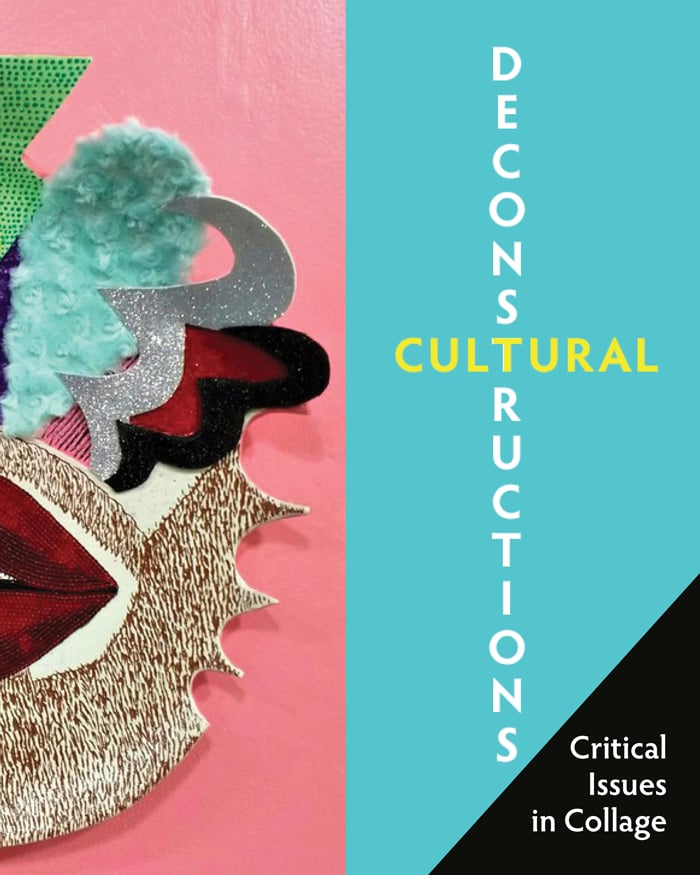![]()
MAGAZINE | INSTITUTE | CURRENT ISSUE | ARTIST DIRECTORY | SHOP
KOLAJ LIVE ONLINE | WORLD COLLAGE DAY
FROM KOLAJ 31
The Work in Progress Mural
In the 1960s, Jann Haworth was a leading figure in the British Pop Art scene. The Beatles asked her and her then-husband, Peter Blake, to make the album cover for Sgt. Pepper’s Lonely Hearts Club Band, which won four Grammys in 1967. The cover became one of the most famous album covers of all time. Over time, Haworth came to see a problem. Of the seventy-five luminaries in the collage, only twelve were women. In 2016, Haworth teamed up with her daughter, collage artist Liberty Blake, to make The Work in Progress mural to correct the oversight. An article about the mural appears in Kolaj #31. MORE
KOLAJ LIVE ONLINE
Celebrating Women Past and Present
On Saturday, January 16th, 2PM EST, Jann Hawoth and Liberty Blake will join Ric Kasini Kadour for the Kolaj LIVE Online event, "Celebrating Women Past and Present." Kadour will interview Haworth & Blake about The Work in Progress mural; collage's role in the British Pop Art scene of the 1960s; making art as a mother-daughter team; and how art can teach us and help us remember our history. MORE
COLLAGE ON VIEW
So Tough
At Sargent's Daughters in New York, New York, USA through 16 January 2021. In a new group of paintings and collages, Emily Furr shifts scale from the diminutive to grand, addressing the tension between humans and nature, and the desire to control the uncontrollable. The floating landscapes are populated by sleek machines striding through space, seemingly impenetrable at first glance. Closer inspection reveals porosity and glimpses of disembodied flesh. White pills, pale and round as the moon, rest on the tongues. MORE
COLLAGE BOOKS
Daily Bread: Raw Meat
by Salamandra (Shakers, 2013). In this series of artworks, Lisa Salamandra utilizes advertisement photographs taken from local supermarket flyers that depict raw meat to construct the female figure. At one moment both lewd and elegant, the figures take inspiration from classic pinup models while the materials used include the actual paper that wrapped the artist's bread. MORE
COLLAGE COMMUNITIES
Coll2
In Barcelona, Spain, Coll2* organizes collage parties and events that combine collage and music into jam session-like events. When Daniela Zuñiga and Xavier Boulogne started to meet up after work with friends to have collage-making sessions, they quickly realized a collective had taken shape. Their goal is to work with collage, approaching a different theme each month through a critical and social perspective, such as global warming, gender violence, migration, animal cruelty. (Image: I can’t believe I still have to protest for this shit by Angie Caro.) They hold different meetings with the intention of generating a moment of reflection, conversation and creativity through their subjectivity and social imagination. MORE
*Featured in The International Directory of Collage Communities by Kolaj Institute. LEARN MORE
FROM THE ARTIST DIRECTORY
Shifting Seasons
Nelson, British Columbia, Canada. To be immersed in Heather Good’s work is to experience the natural world at a visceral, almost preconscious, level. Each painting forms a snapshot into the shadowy world of our own cognitive landscape. Objects, flora, elements, words, the shifting seasons: these familiar subjects and processes serve as her transient yet consistent touchstones. MORE
CALL TO ARTISTS
World Collage Day 2021
Deadline January 31, 2021. The next World Collage Day is May 8th, 2021. For those interested in joining in the spirit of World Collage Day, we offer a number of opportunities to join in the celebration. Each year, Kolaj Magazine works with a collage artist to make a poster and other marketing collateral for the annual event. This year, we want to hear from artists who are interested in being considered. In honor of World Collage Day, Kolaj Magazine will issue a Special Edition of the magazine that features Cut-Out Pages and articles about the collage community. Visit the website for specific details. MORE
COLLAGE ON VIEW
Absolute Relativism
At Ivester Contemporary in Austin, Texas, USA through 9 January 2021. Dave McClinton's single-edition digital collages are a continuation of his “Black Life” series, an ongoing project begun in 2015 with the aim to illustrate the inner life-cycle of Black people in America. The works focus on the bodies and portraits of Black people embellished with textures of foundational elements, symbols related to trade and status, as well as text from historical documents derived directly from America’s long and lingering history of slavery and white supremacism. MORE
Recent Publications
Our goal with every issue is that Kolaj Magazine is essential reading for anyone interested in the role of contemporary collage in art, culture, and society. We not only hope you enjoy the articles and images in Kolaj #31, we hope it leads you to asking great questions.
CURRENT ISSUE
Kolaj #31
If Kolaj #31 has an overarching theme, it would be about how artists are pulling from the past to speak to the now. We swim in a stream of ideas, some of which come at us so quick and hard that we rarely have a chance to consider where they come from…or where they are going. What ever happened to those stolen collages? Why do we think these things about some people but not others? Why can’t we name five scientists who are women? What is my place in the art world? How do I speak to my community? These are deep, critical questions that artists are trying to make sense of for themselves and for the people around them. It is exciting to tell their stories. Learning about them, what they did, how they work makes us better artists, writers, and, hopefully, better people. Collage is powerful magic. MORE

COLLAGE BOOK
Unfamiliar Vegetables: Variations in Collage
Unfamiliar Vegetables is a collection of collage where each of the fifty artists interpreted, in their own way, Carlotta Bonnecaze’s 1892 Carnival float design Familiar Vegetables. Project organizer Christopher Kurts observed, “Unfamiliar Vegetables is an experiment in controlled chaos….tiny variations within each artist’s creative sphere accumulate until the outcomes are as unique as the people creating them.” MORE
COLLAGE COMMUNITIES
The International Directory of Collage Communities
The 104-page book is a survey of collage networks, guilds, communities, and projects as well as online efforts and groups focused on collage research. For each community, the directory presents their key activities, mission, how to join, and a bit of their history. Copious images illustrate the book. MORE
BOOK
Radical Reimaginings
The curators of the 96-page book invited artists who use collage in their practice to put forward a work of art that offers a visual narrative that speaks to the unprecedented change unfolding in 2020. An essay by Ric Kasini Kadour reflects upon collage's unique ability to imagine new realities. Forty artists from nine countries and multiple Indigenous peoples—Salish-Kootenai/Métis-Cree/Sho-Ban, Tlingit/Nisga’a, Oglala/Lakota, and Seneca Nation—offer a variety of perspectives. The voices of Black, Latinx, Native, and white Americans mingle with those from Chile, Colombia, Mexico, Peru, Argentina, Canada, France, and Germany. Artwork is accompanied by a statement in which the artists describe how they want to reimagine the world. MORE
BOOK
Collage Magic
by Emma Anna
Part autobiography, part fantasy, Emma Anna’s vision of The New Old World (aka The NOW) fuses vintage ephemera with modern imaging technologies. Emma shapes this strange world by using the pen tool from Adobe Photoshop as her magic wand, in the process declaring herself to be a “collage magician”. Part artist book, part document of art making, Collage Magic, from La Casa Verde Editions, is Emma Anna’s journey through magic and art. MORE
BOOK
Revolutionary Paths
When the collage is presented in exhibition, it is often done so without the critical framework granted other mediums. In "Revolutionary Paths: Critical Issues in Collage", exhibition curator Ric Kasini Kadour presents examples of collage that represent various aspects and takes on the medium. Each work in the exhibition represents the potential for deeper inquiry and further curatorial exploration of the medium. MORE
BOOK
Cultural Decontructions
Collage is unique as a medium in that it uses as its material artifacts from the world itself. To harvest those fragments, the artist must first deconstruct culture; they must select, cut, and remove the elements they do not wish to use and then reconstruct work that tells a new story. In "Cultural Deconstructions: Critical Issues in Collage", exhibition curator Ric Kasini Kadour presents examples of collage artists who are deconstructing identity as a way to critique culture. MORE
Our goal with every issue is that Kolaj Magazine is essential reading for anyone interested in the role of contemporary collage in art, culture, and society. Each issue of Kolaj Magazine is dedicated to reviewing and surveying contemporary collage with an international perspective. We are interested in collage as a medium, a genre, a community, and a 21st century art movement.
